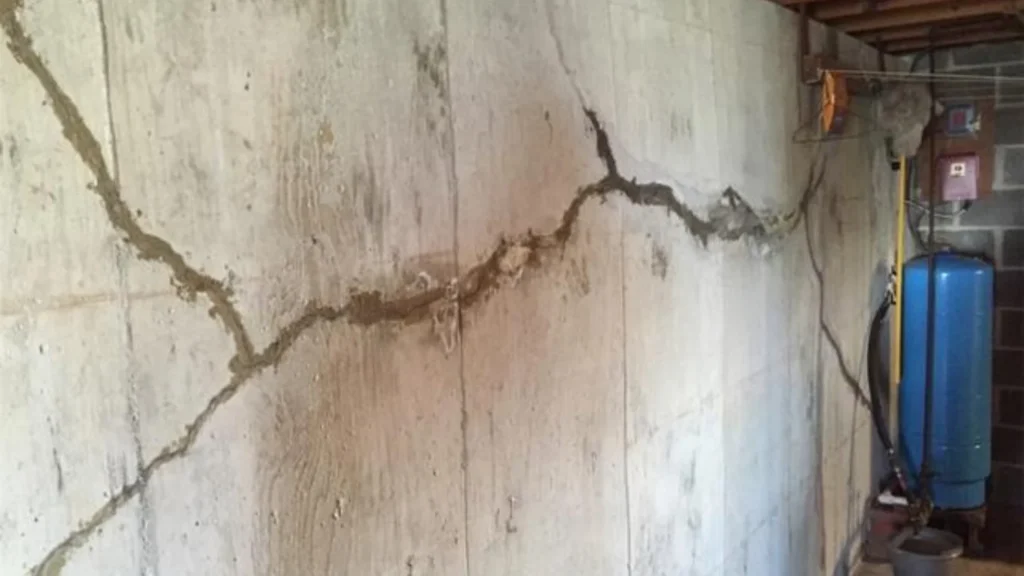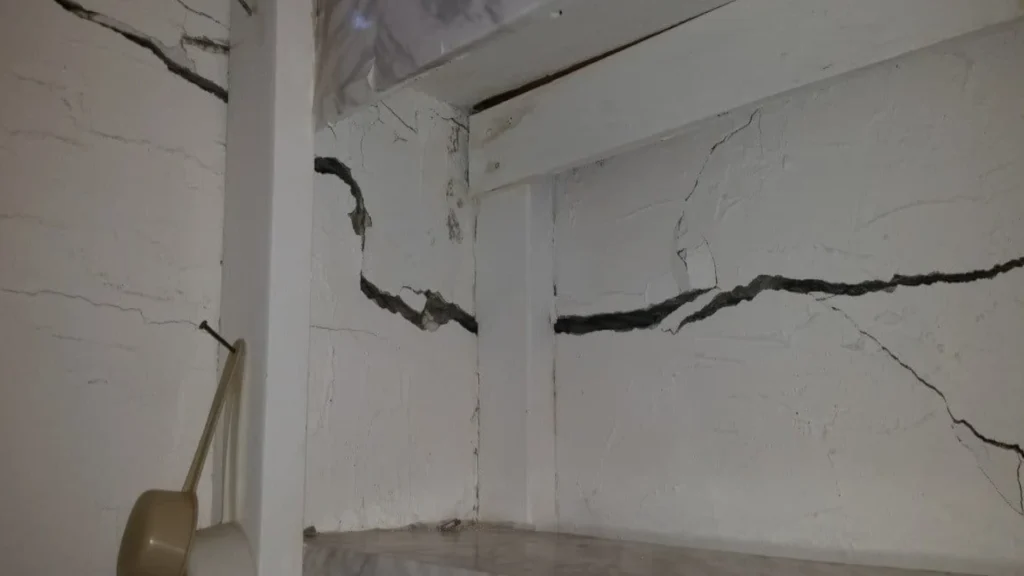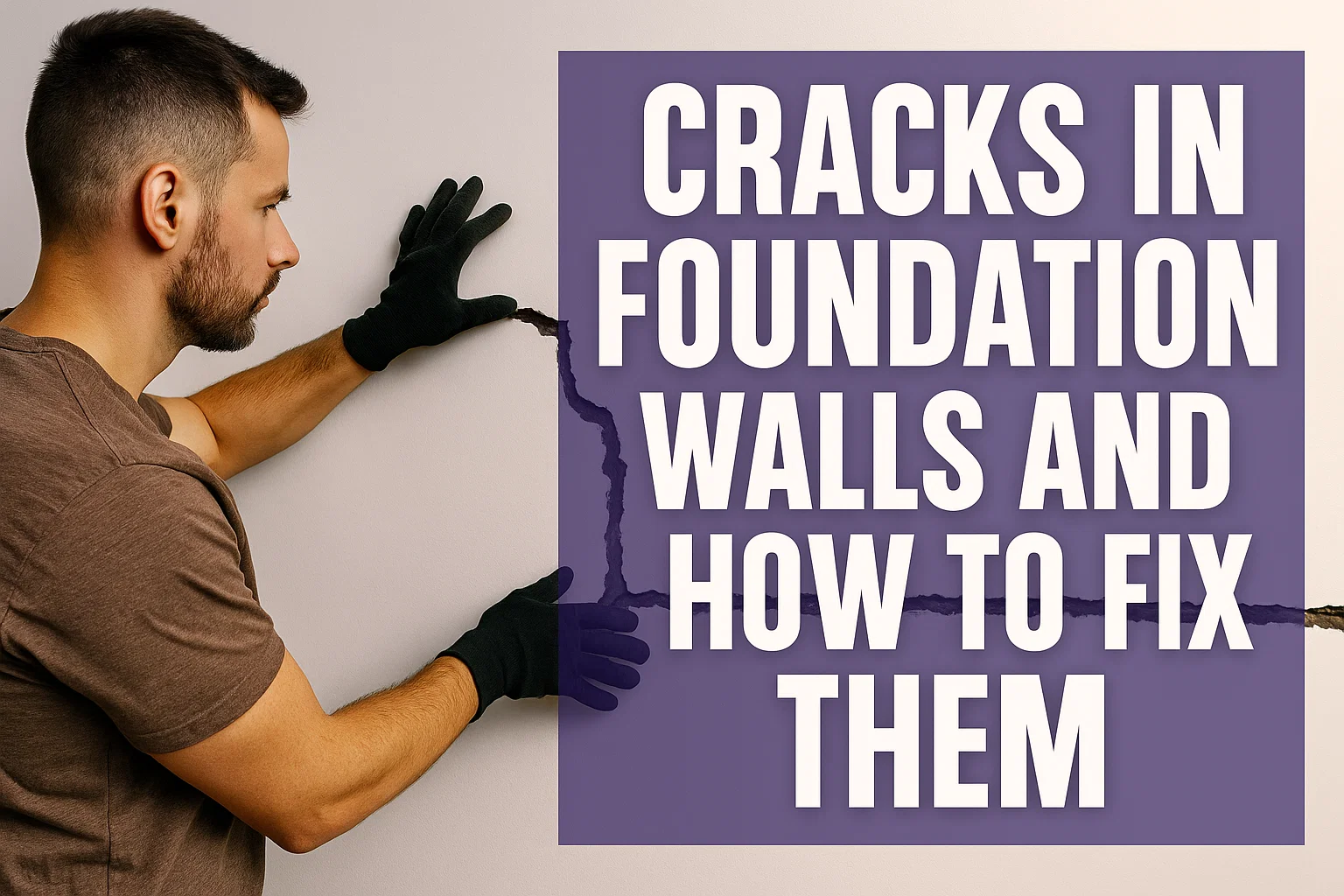Foundation cracks are common in many homes, but not all cracks are the same. Some are harmless and easy to repair, whereas others may indicate severe complications. Your home foundation is your backbone: it supports and makes your house firm. However, it may be alarming when cracks finally appear in the walls or floors. Are these cracks normal? Is it that your house is in trouble?
We will discuss in this guide the reasons why foundation walls crack, which cracks you should be concerned about and how these cracks can be repaired and prevented.
What Causes Cracks in Foundation Walls?
The cracks in the foundation may be due to various causes which range from soil conditions to water damage and even settling due to natural causes. The first step towards getting the right solution is understanding the cause.
1. Soil Movement and Settling
The ground of your house contributes a lot to the stability of the ground. The unbalanced shift or uneven settlement of the ground exerts pressure on the foundation. In the long run, it can lead to cracks.
- Common problems include expansive clay soils. When wet, they swell and when dry they shrink, pushing and pulling the foundation about all the time.
- Poorly compacted soil under a new home will also sink unevenly following construction and cracking will occur as the foundation settles.
2. Water Damage and Poor Drainage
One of the largest enemies of any foundation is water. When the water gathers around the foundation of your house, it increases pressure on your walls a condition referred to as hydrostatic pressure.
This happens when:
- Gutters are loosened or broken.
- Downspouts pour water immediately near the foundation.
- The yard is not directed away but towards the house.
3. Poor Construction or Weak Materials
The issue begins on day one in some cases. Provided that the foundation was not constructed correctly or the concrete was not mixed properly, it may become weaker with the course of time. The cracks may develop earlier than anticipated due to low quality of materials, insufficient reinforcement or improper curing.
4. Tree Roots Growing Too Close
The roots of the trees naturally tend to go toward moisture, and in case your foundation is close, they will create issues. Expanding roots may crack or wring out the foundation walls, or move the soil drying it unevenly, resulting in uneven settling.
5. Temperature and Seasonal Changes
During hot weather, concrete swells expand and during cold weather it contracts. Such minor movements can create cracks in the hairlines over time. Although small cracks are not very serious, they may become larger when the water leaks into them and freezes in winter, creating an enlarged gap.

Why Foundation Cracks Are a Concern
At first the cracks can be minor but when they are ignored they can result in very large problems. One should also understand what the normal settlement cracks and foundation cracks are to should be aware of them.
Foundation Cracks to Be Concerned About
- Horizontal cracks: This usually indicates that it has excessive pressure due to soil or water. They are a significant warning signal and demand professional attention.
- Stair step cracks in the foundation: Stair step cracks occur in the zigzag form along the brick or block walls. They are normally a result of uneven settling and this can compromise the stability of the wall.
- Wide cracks (larger than 1/4 inch): When a crack continues to widen that is an indication of movement or continuous pressure.
- Cracks with water leakage: Backwater leakage may damage, develop mold, and weaken the foundation further.
How to Fix Cracks in Foundation Walls
The repair of a crack in the foundation is dependent on its type, size and reason. Other cracks may be repaired on an easy basis using a basic sealant whereas others may require professional assistance. The following is a step-by-step guideline on how to repair it optimally.
Step 1: Identify the Type of Crack
Different cracks tell different stories. Here is how to recognize them:
Vertical Cracks
- Cause: Progress normal settling or shrinkage of concrete.
- Solution: In most cases, not severe. You can stuff them with epoxy or polyurethane sealants to avoid water penetration.
Horizontal Cracks
- Cause: The occurrence of water pressure or soil pressure against the basement walls.
- Solution: Critical structural issue. Steel beams, carbon fiber straps, or wall anchors are typically required to support the weight of a professional.
Diagonal or Stair Step Cracks in Foundation
- Cause: Irregular settling of the foundation as a result of the moving soil or improper drainage.
- Solution: May need to add support under the foundation to stabilize the foundation and elevate it.
Cracks in Foundation Slab
- Cause: Drying out of concrete or inadequate soil bearing.
- Solution: The cracks of small slabs can be closed, but the broader ones or those not straight can require slab jacking (lifting the slab) or underpinning.
Step 2: DIY Foundation Crack Repair
Small cracks are easy to do on your own with a few materials and time. Here’s how:
- Clean the crack: Wipe dirt or loose concrete using a wire brush.
- Use epoxy or polyurethane sealant: The sealant should be injected through a caulking gun. Epoxy is more resilient whereas polyurethane is effective in waterproofing.
- Smooth the surface: Use a putty knife to even out the area.
- Allow it to cure: Don’t paint or seal the sealant unless it is completely dry.
The technique is effective with cracks less than 1/8 inch which are not characterized by structural movement.
Step 3: When to Call a Professional
When your crack is wide, horizontal or the wall is bowing, then you should call a foundation repair specialist. Professionals will examine the cause and make the correct choice of repair using sophisticated equipment.
Professional repair options include:
- Epoxy Injection: This is used to glue cracked concrete.
- Carbon Fiber Reinforcement: Provides strength to bowing or bending walls.
- Underpinning (Piering): Sinking foundations are supported by means of steel piers or helical anchors.
- Waterproofing: Addresses the drainage problems and avoids future moisture complications.

Step 4: Preventing Future Foundation Cracks
After you have fixed your foundation, the trick is to prevent it.
The following are some of such simple habits that work:
- Gutters should be free of debris and downspouts should be at least 6 feet away.
- Grading the yard away is directed towards the foundation.
- Large trees should not be planted near your house.
- Watering evenly also ensures that the soil remains moist even during dry seasons.
- Inspect your foundation yearly for new cracks or leaks.
Helpful Tips for Maintaining a Healthy Foundation
To protect your home from cracks in foundation walls, keep these tips in mind:
- Check after heavy rain. In case you notice that water is accumulating around your foundation, correct it immediately.
- Seal small cracks early. You do not have to wait till they get bigger.
- Control humidity in basements. Minimize water on dehumidifiers to make concrete weak.
- Watch for changes. Mark has taped cracks and measures them after every few months.
- Hire professionals for inspection. A problem can be detected annually and thus it is not very costly.
Conclusion
The cracks of the foundation may begin small, but they may cause huge problems when not addressed. Understanding what makes foundation walls have cracks, how to find the foundation cracks that are worthy of worry and when to find professionals to help you with the broken foundation will save your home many years ahead.
To explore more about professional foundation repair and home improvement solutions, visit Lapans Basement Waterproofing.
FAQs
Cracks are usually caused by soil movement, water pressure, poor drainage, or weak construction materials.
Horizontal and stair step cracks are the most serious and should be inspected by a professional.
If cracks are wide, growing, or causing other problems like uneven floors or stuck doors, take action immediately.
Yes, small cracks can be sealed using epoxy or polyurethane kits available at most hardware stores.
Costs vary from a few hundred dollars for minor fixes to several thousand for major repairs.







